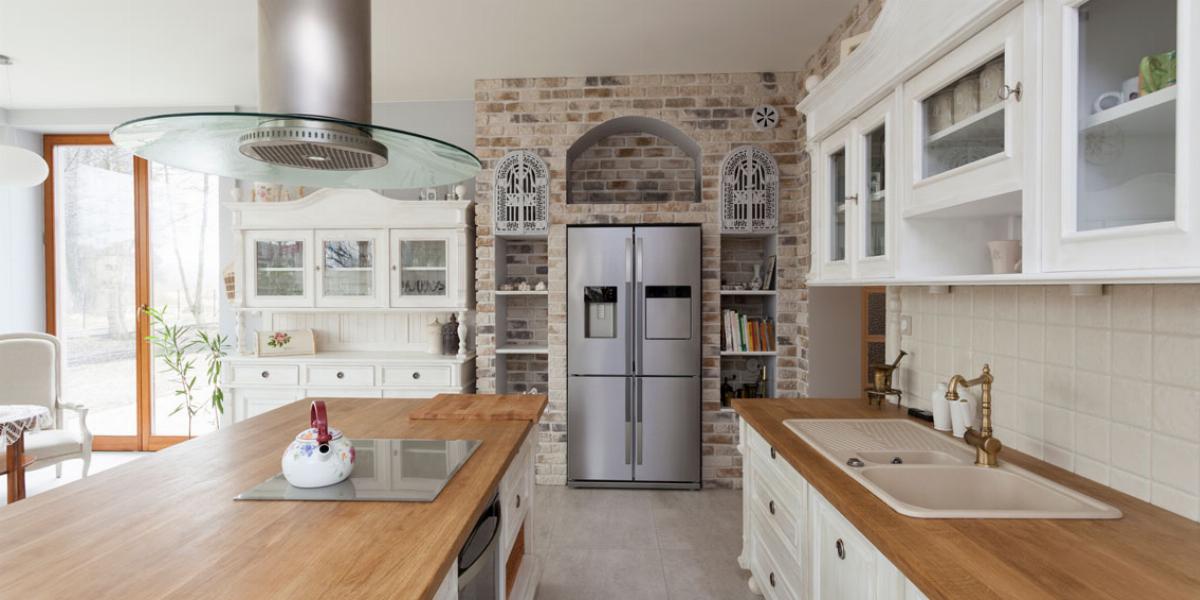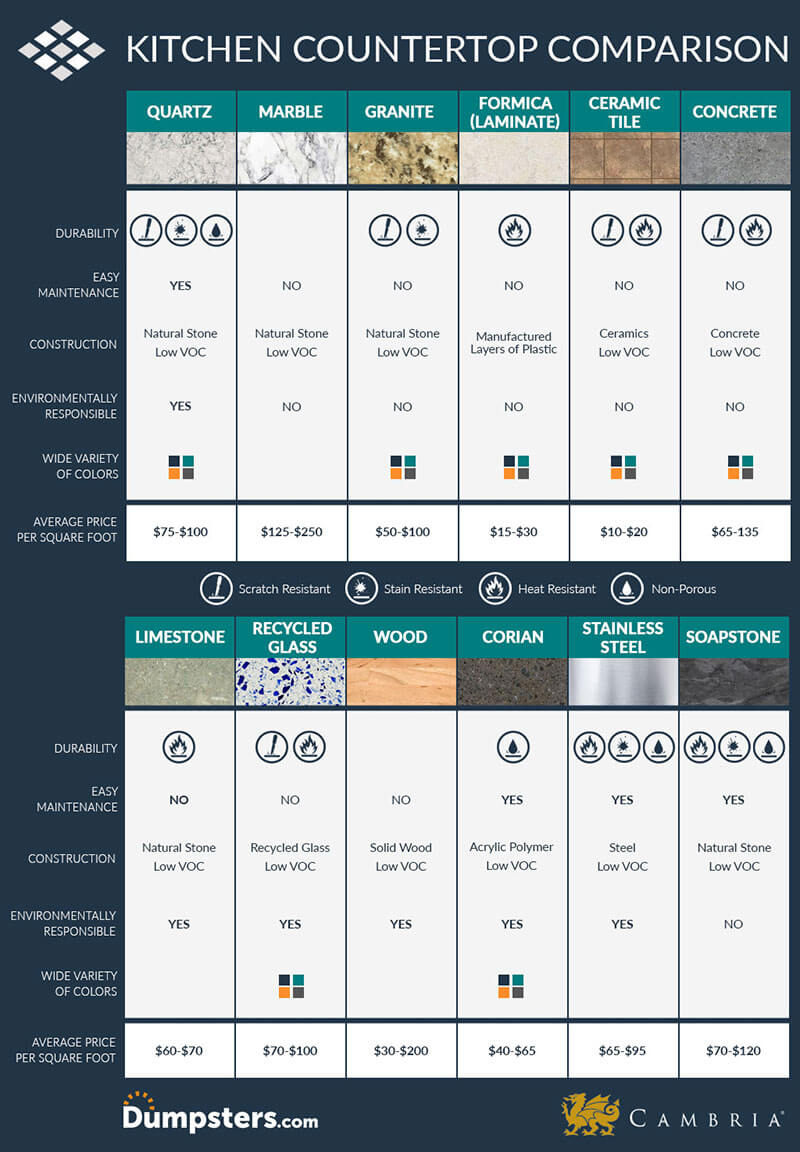
Dreaming of an eco-chic kitchen? The grainy aesthetic of woodblock countertops can help you achieve that natural look, but will it really stand up to the heat, nicks and spills that happen in a kitchen? To help you decide if wood is the best counter material for you, we rounded up the pros and cons of butcher block with tips from industry experts at NEWwoodworks, The BWC Company and Brooklyn Butcher Blocks.
Butcher block countertops are made from straight cuts of wood glued together. The thick slabs offer a sturdy and smooth surface for food preparation. While they’re usually found in commercial kitchens, meat processing plants and butcher shops, many people are incorporating woodblock countertops into their homes.
If you’re considering this work surface for your trendy new kitchen, here’s what you should know.
While there are many advantages of wood block countertops, it’s also important to know the drawbacks.
| Pros | Cons |
| More sustainable than other materials. | Dents and scratches accumulate over time. |
| Has natural anti-bacterial properties. | Must still use a cutting board to protect surface. |
| Available at a wide range of prices. | Requires routine maintenance and proper sealing. |
| A variety of colors and styles to fit any home interior. | Prone to water damage if untreated. |
With a wide range of woods at various price points, you can probably find a wood countertop that’s affordable for you. Use the chart below to find a style that fits your budget.
| Types of Wood | Characteristics | Average Price |
| American Cherry | Traditional look, rich red | $152/sf |
| Ash | Light color, consistent grain | $18/sf |
| Alder | Knotty, rustic | $41/sf |
| Beech | Light to medium tone | $4/sf |
| Birch | Exotic, reddish brown tone | $34/sf |
| Hickory | Light to medium brown | $30/sf |
| Maple | Traditional look, golden hue | $83/sf |
| Pine | Knotty, light color | $11/sf |
| Poplar | Light color, fine grain | $38/sf |
| Red oak | Fits well with colonial style | $4/sf |
| Sapele | Rich, warm | $5/sf |
| Teak | Dark brown, gold streaks | $130/sf |
| Walnut | Dark, durable | $11/sf |
| White Oak | Medium tone, fine grain | $5/sf |
*Sources: ImproveNet, Home Advisor
Yes, you can. Sealing butcher block countertops is a great way to maintain their look. When choosing a finish, the most common choices are polyurethane and oil. Poly is a topical, chemical-based option that dries into a plastic coat which helps keep out moisture. Natural oils penetrate the wood and maintain the original texture.
“We craft chop block tops from a variety of species with good results. We prefer oil finishes on most tops, especially in non-commercial uses. While they can require more upkeep and re-application of oil, they are more forgiving than film finishes and easier to repair.”
Rob D’Alessandro | General Manager and Fine Woodworker, NEWwoodworks
Keep in mind that sealed wood countertops should never be used as a cutting surface. For unsealed countertops, it’s especially important to routinely condition the wood.
Think wood countertops are right for you? We asked the pros how to maintain them.
To determine the right care routine, decide whether or not you want to prepare food directly on the wood countertop or on a separate cutting board.
“Butchers wax should not be confused with butcher block oil. Our wax product is popular for sealing and shining wood counters that are not going to be used as a cutting board. But cutting boards should use butcher block oil to help moisten and keep the grain from separating.”
Brad Erickson | The BWC Company
Nils Wessell of Brooklyn Butcher Blocks recommends coating cutting board wood countertops with mineral oil once every couple of weeks, or as needed. “Mineral oil evaporates, unlike a finish such as varnish. You can't really oil it too much, so why not make sure it's kept treated?”
Walnut oil and tung oil are also popular, but may be a problem for those with nut allergies.
Rob D’Allessandro provides the following wood countertop maintenance tips for everyday care:
To keep your butcher block countertops clean and well-maintained, Wessell has some advice on what not to do.
To compare butcher block to other countertop materials available, use our infographic below with expert advice from Cambria.

While butcher block countertops are a sustainable material available in a wide range of styles, they require a great deal of maintenance. Whether they’re the best choice for your remodel depends on how much elbow grease—and mineral oil—you’re willing to put into them. Many homeowners see preserving the wood as a labor of love, bringing a special warmth to family gatherings for years to come.
If you’re ready to rip out your old countertops, don’t forget to rent a dumpster to handle the debris. Searching for more home remodeling inspiration? Check out the For the Home section of our blog.
